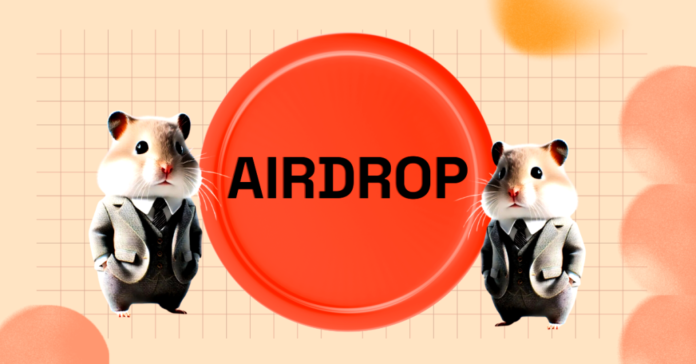The post Where Exactly Did the Hamster Kombat (HMSTR) Airdrop Go Wrong? appeared first on Coinpedia Fintech News
Hamster Kombat, a famous tap-to-earn Telegram game had recently launched the trading of its HMSTR token on several major exchanges. While the event was highly anticipated, the airdrop had left many of the players with disappointment.
Many of them also called it one of the worst airdrops in the history of crypto. What exactly happened and why the most anticipated airdrop failed to meet the expectations? Lets find out.
Unfair Reward Distribution, Sudden Rule Changes
Prior to the airdrop, many participants were disqualified unexpectedly. Players who focused on boosting their points per hour (PPH) to accumulate the tokens were banned just before the occasion. Notably, the developers implemented a new ‘anti-cheat’ system, which caught many of them unprepared. The affected participants claimed that the move seemed to benefit influencers, with a significant amount of the tokens redirected to them instead of regular players, which caused major outrage.
Initially, the team had planned the airdrop for July 2024 which was delayed due to technical unpreparedness. This enraged many of them who were eagerly awaiting their rewards. In late August, the team announced that the airdrop was finally occurring in September. While the new deadline was met, they lost the trust of many community members.
What aggravated the situation even more was, the developers announced that the participants would only get 88.75% of their tokens. And the remaining 11.25% would not be distributed until July 2025. This unexpected rule change led to a growing boycott crusade within the community.
Fears Of Low Listing Price of HMSTR
One of the primary concerns of the airdrop was the value of the HMSTR token at launch. The token debuted at $0.01 and immediately, the price began to decline. The sharp drop in the token over 30% disappointed both long-term and short-term investors who had better expectations from the project’s token.
A user in X shared his disappointment stating- ““Where are those YouTubers and influencers who gave the community false hope of $0.10 or $0.50? Hamster Kombat has turned out to be the worst airdrop in crypto history. It’s almost 50%-60% down now.”
As of this writing, HMSTR is trading at $0.0019, almost 40% lower than its initial value.
Disappointing Payouts, Challenges In Selling The Tokens
After months of interacting with the game, many project participants found themselves with only a few dollars’ worth of HMSTR tokens. Players complained that despite the time spent on activities like tapping hamsters to earn rewards, the payouts were disappointingly low.
“Hamster Kombat has cheated the community. They have allocated a large portion of airdrops to YouTubers and influencers for referrals. They’ve implemented vesting without informing the community. They’ve made people work like labor, day and night to collect keys from their games and gave $5 or $10 tokens,” Crypto with Khan, a prominent crypto influencer commented.
Crypto analyst Gaumtamgg in an X post, criticized the Hamster Kombat team for “lacking experience”. He said that “they’re making crazy money from YouTube (views & ads) by doing this. It’s pretty clear their focus is on profiting from content”. He noted that “the Project doesn’t have any actual use case or utility. There’s no impressive roadmap for the future.”
Moreover, those with small token amounts faced additional challenges when trying to sell them. For instance, Some exchanges, like Binance, require a minimum transaction value of $5, making it impossible for users with smaller token balances to cash out their HMSTR.
Telegram Wallet Outages
Moreover, the launch of HMSTR trading overlapped with technical issues in the Telegram wallet, which is operated by TON blockchain. TON, built on the remnants of a deserted Telegram crypto project, is responsible for running the crypto wallet within Telegram, where users hold HMSTR tokens. Due to network overloads, many users found themselves unable to access or trade their tokens, further adding to the frustrations around the airdrop.



